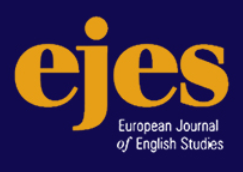
Interstitial Spaces
European Journal of English Studies
Guest editors: Frederik Van Dam (Radboud University), Joanna Hofer-Robinson (University College Cork), Chris Louttit (Radboud University)
In the course of the past two decades, the field of English Studies has witnessed a return to a focus on space, both as a critical methodology and as a subject worthy of renewed attention. On the one hand, scholars draw inspiration from adjacent fields such as cultural geography and media archaeology to examine the circulation of literature and the arts in local and global contexts. Opportunities offered by digital tools play an important role in such endeavours. On the other hand, scholars rely on the foundational work of Henri Lefebvre, Michel de Certeau, and Gaston Bachelard to find new ways of mapping out the representation of space and place in English literature. In this regard, the critical gaze has honed in on overlaps, intersections, and contact zones.
The present issue aims to push established scholarship on the ‘spatial turn’ in new directions through an examination of interstitial spaces, that is, the corridors, roads, and routes that exist in between and connect different spaces. While contributions on literary and cultural texts from any historical period are encouraged, the editors will particularly welcome proposals that deal with the long nineteenth century.
Topics might include but are not limited to:
- Interstitial spaces of authorship: literary Bohemia, the salon, the club
- The sea as a geopolitical or colonial space
- Non-spaces (Marc Augé) in city literature
- The gendering of interstitial spaces
- The multiple occupancy of interstitial spaces by different communities
- The function of maps in storytelling / the function of storytelling in maps
- Interstitial space and interstitial time: revisiting the notion of the chronotope
- The emotions of being in between spaces
- English literature abroad: transculturation, circulation, reception
Detailed proposals (up to 1,000 words) for essays of no more than 7,500 words and a short biographical blurb (up to 100 words) should be sent to all three editors by 30 November 2021:
Frederik Van Dam (f.vandam@let.ru.nl), Joanna Hofer-Robinson (joanna.hofer-robinson@ucc.ie), and Chris Louttit (c.louttit@let.ru.nl)
This issue will be part of volume 27 (2023). All inquiries regarding this issue can be sent to the three guest editors.
Procedure
EJES operates a two-stage review process.
- Contributors are invited to submit proposals for essays on the topic in question by 30 November 2021.
- Following review of the proposals by the editorial board panel, informed by external specialists as appropriate, the guest editors will invite the authors of short-listed proposals to submit full-length essays for review with a spring 2022 deadline.
- The full-length essays undergo another round of review, and a final selection as well as suggestions for revisions are made. Selected essays are then revised and resubmitted to the guest editors in late 2022 for publication in 2023.
EJES employs Chicago Style (T&F Chicago AD) and British English conventions for spelling. For more information about EJES, see: http://www.essenglish.org/ejes.html.